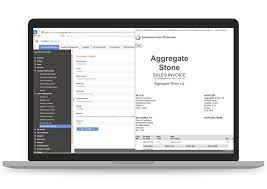A calculator that will enable construction firms to estimate the amount of carbon embodied in their buildings and projects is to be developed with the help of University of Bath academics – helping solve a key challenge as the sector targets net zero.
The university is working on the Carbon Calculation Engine with specialist construction industry software company Causeway Technologies.

The move follows the award of a Knowledge Transfer Partnership (KTP) grant from Innovate UK, meaning the university’s experts will work alongside Buckinghamshire-based Causeway in a two-year collaborative programme.
As a result, Causeway will be able to improve the estimation of embodied carbon using data from its Tradex e-invoicing platform.
The project forms part of the firm’s Scope 3 Initiative, pictured, which also involves major construction firms Aggregate Industries, Balfour Beatty, Galliford Try and Morgan Sindall.
Embodied carbon is, essentially, the entire carbon footprint of the construction of a building – and calculating it requires measuring all materials used as well as all activities related to those materials, such as processing and transport.
The Global Alliance for Building and Construction estimates the construction and use of buildings causes 37% of energy-related CO2 emissions.

The new Carbon Calculation Engine will use invoice data from Causeway’s Tradex e-invoicing platform, which handles around15,000 supplier and contractor invoice transactions a day, along with University of Bath expertise in modelling and determining embodied carbon.
This will enable embodied carbon to be measured in real time as a building or structure is erected.
Causeway emerging technologies consultant Dr Adam O’Rourke said: “This KTP will allow us to develop a Carbon Calculation Engine that will enable our customers to predict and determine the ‘as built’ embodied carbon.
“The market opportunity is huge; over 7,000 building design practices have committed to measuring embodied carbon and there is significant industry activity in this area.”
He said working with the University of Bath would bring in world-class research and, crucially, embed critical knowledge and skills within the business.
“These high-level skills offered by partnering with the university, combined with the deep embedding of knowledge are not available through consultancy,” he added.
Under the terms of the KTP, an associate employed by the university will work at Causeway to develop the Carbon Calculation Engine.
The associate will be supervised by Dr Stephen Allen, senior lecturer in the Department of Architecture and Civil Engineering, and supported by Mechanical Engineering lecturer Dr Rick Lupton, who will use his experience of data integration, ontologies, uncertainty and data visualisation to support the academic delivery within the project.
Dr Allen said: “This is an exciting collaboration for both the university and for the company. Causeway is developing cutting edge in-house software for the construction industry and we can advance that development in the critical areas of embodied carbon estimation and Net Zero targets,”
The University of Bath, under its Enterprise and Entrepreneurship programme, offers a range of development and collaboration opportunities including support for start-ups, consultancy, access to expert research networks and Knowledge Transfer Partnerships.



















